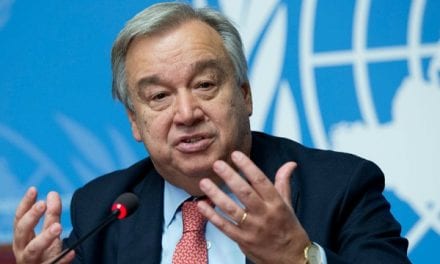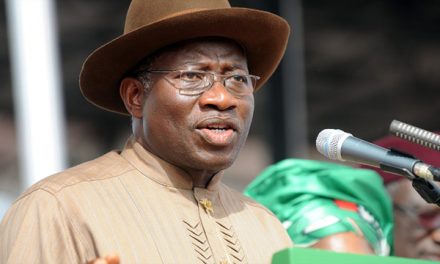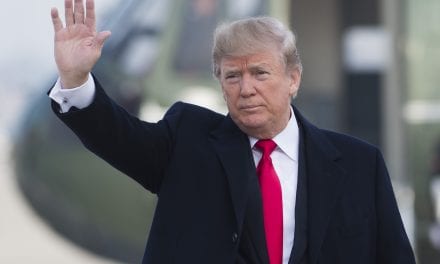The Ambassador of Greece to the United States, Mr. Vassilis Kaskarelis, talks in Los Angeles about Greece, the economy and foreign policy
By Alexander Mizan, American Hellenic Council of California
On May 4, 2011 Ambassador of Greece to the United States, Hon. Vassilis Kaskarelis was honored by the Los Angeles World Affairs Council as Diplomat of the Year in an exclusive diplomatic event held at the Four Seasons Hotel in Beverly Hills, CA.
We caught up with Ambassador Kaskarelis and talked to him about his career, Greece, the current economic situation and other issues of concern to Greeks in Greece as well as Greeks in the diaspora. Here is what he had to say.
American Hellenic Council: How many years have you been in the Greek Foreign Service and can you give us a glimpse of your service record:
Ambassador Vassilis Kaskarelis: I have been in the Foreign Service for thirty-seven years, having served in various posts. I served in Ankara , Nicosia and West Berlin when the Berlin Wall was coming down. I also served in Brussels as Permanent Representative to NATO and the EU and another six years as Ambassador to the United Nations.
AHC: Which diplomatic post do you feel has been the most interesting and which one the most important?
VK: If I had to pick one, I would say that the EU post is the most important one when it comes to making decisions on issues that have an immediate impact for people back home in Greece . In Brussels , we held meetings and formed policy on issues related to foreign affairs, healthcare, tourism and other ones that eventually shape domestic legislation. That is not to say that the Ambassadorship in Washington is not important. The United States remains the most important actor in world affairs and in terms of pure diplomacy and strictly foreign relations, Washington is still the center of it all.
AHC: How has the sovereign debt crisis affected your duties and responsibilities? Has it changed the way Greece is perceived and has it created a tougher environment in which you have to do your job, either internally or vis-à-vis our diplomatic partners?
VK: The economic crisis definitely changed the priorities of the diplomatic mission in Washington.Since March of 2010, sixty percent of my time has been dedicated to explaining the financial situation in Greece , clarifying what happened and at the same time trying to change the perception of American elected officials about Greece . After the IMF/EU package was put together and within a timespan of two months, we held meetings with over 80 members of Congress in an effort to help them better assess the situation. Our efforts focused on helping them get a more comprehensive picture an not swayed solely by what the market rhertoric. That was in the midst of hedge funds attacking the Euro and using Greece ‘s debt burden as a weapon to do so and while some Republican Members of Congress were crying wolf that Greece represents the worst that what the USA can become.
AHC: But the markets were not completely wrong… I mean, Greece was led to the economic crisis due to internal structural problems. Bond market speculation might have exacerbated the situation but some would argue that there are severe underlying problems in the Greek Economy and that the speculators simply accelerated the inevitable outcome.
VK: It’s true that Greece is a country that had serious mismanagement issues in the last 30 years. Past governments did not make the hard decisions that they needed to make. But since last year, we have been implementing drastic changes and we are moving towards the right directions. Public employees’ salaries and pensions have been cut by up to 30% in some areas. We have downsized the local government. With Kapodistrias, we moved from 1600 to 320 municipalities eliminating a lot of the waste and gaining efficiencies. At the same time, we continue to move towards privatization of state-owned enterprises and we are currently in the process of changing the labor laws to allow for a more employer-friendly business environment.
AHC: Some people argue however that all these austerity measures might backlash, either by creating political turmoil or by sinking the country into a prolonged period of stagflation and further damaging the economy, stressing the unity among EU member states even further.
VK: All of the above austerity measures have taken place without serious popular opposition domestically, a fact that leads me to believe that the people of Greece do understand the predicament of the country’s finances and that there need to be urgent structural reforms in the economy. Greece is a wealthy country. At the time of the EUR110 Billion loan in May 2010, the country had about EUR65 billion in uncollected tax receipts and no mechanism to collect them. This is not a production problem but a public administration problem. The measures are necessary and EU supervision is actually beneficial for Greece . It provides the necessary know-how and outside political pressure for Greece to implement the necessary changes. I acknowledge that popular opinion in other European countries might at time not be aligned with the prerogatives in Brussels and markets might be pricing increased strains among Member States. However, we need to keep in mind that the leadership of the EU is committed to greater integration and that the system works slowly because you need consensus among 27 sovereign states for any crucial decision. The markets are only looking at the financial side of this. They are not looking into the political parameters, the fact that the Euro in and of itself is precious politically for all of Europe .
AHC: What about the ”brain-drain” though that is a result of a prolonged period of subpar economic growth and lack of opportunities for the youth?
VK: Unfortunately, we see the so-called “brain-drain” continuing and accelerating in the foreseeable future. Our latest statistics show very high youth unemployment and a 30%-40% increase in job applications from Greece to employers abroad.
AHC: Switching gears, what do you think are the major Foreign Policy and security challenges facing Greece right now and for the future 5-10 years and how are they getting addressed?
VK: Greece ‘s security challenges remain the same as before. Cyprus , the Aegean and the FYROM name issue are at its core. We do need however to expand the agenda when it comes to bilateral talks with the US Administration so that we find common ground and common solutions. When Prime Minister George Papandreou and Foreign Minister Droutsas met with their counterparts in Washington , they opened up the dialogue to address issues of concern to the US and find ways that Greece can help the US . We discussed issues ranging from Afghanistan , the Middle East , Iran , to piracy off the coast of Somalia . We tried to find ways for the two countries to help each other on those fronts and stayed open-minded about US interests, not just Greek interests.
AHC: If you look at other countries and their ethnic minorities in the US, it seems that there is better coordination between the two. Two examples are Turkey and Israel. How do you view Greece‘s relationship with the Greek-American community and do you think that its advocacy focus is on target? Do you see Greece interacting more closely with the Greek-American community here and trying to lead in this relationship?
VK: I think there is good cooperation between Greece and the Greek-American community on political agenda issues. Hand-in-hand with the local community here, we have been working on expanding the agenda and addressing the new priorities that I mentioned earlier. The community is doing a better job in coordinating efforts among the existing organizations and upgrading their role to make it more influential in the political stage. One of the top things on the agenda is to strengthen ties with other ethnic communities. For example, last December we held the first business dinner between the American Jewish community and the Greek Community. We are hoping that we see more of this kind of interaction. However, I do believe that it’s neither healthy, nor possible for the Greek government to directly interfere and tell Greek-Americans what they need to do and what they don’t need to do.
AHC: How does the Greek Government see the relationship with Turkey and what is your take on its leader Recep Tayyip Erdogan?
VK: It appears that after six years in a struggle with the Turkish military, Erdogan has consolidated his power and gained the upper hand. Confirmation of that is expected to be seen in the upcoming elections in June, where he is expected to win with a wide margin. Yet, Erdogan’s intentions and policies are posing several questions that are left unanswered. On one hand, his attitude vis-à-vis Greece are less belligerent compared to the generals’. We see it as a positive that he is trying to marginalize the influence of the military within Turkey . On the other hand, he is trying to claim regional power status for Turkey and emerge as the leader of the Islamic world. And with the Islamic world currently in flux, the future appears a big unknown.
AHC: What about the Exclusive Economic Zone (Greek: AOZ)? There has been a lot of noise surrounding the issue lately, especially in light of Cyrpus unilaterally claiming its own EEZ and with the Theodorakis Movement. What is Greece‘s official position on this matter?
VK: The EEZ issue is currently being addressed as part of comprehensive, unofficial negotiations between Greece and Turkey . These negotiations started in October 2009 when Prime Minister Papandreou met with Turkish counterpart Recep Tayyip Erdogan. I am not privy to the specific items discussed and the complete picture but I can attest that the negotiations are on the right track. With regards to some voices calling for Greece unilaterally declaring its EEZ, as Foreign Minister Dimitris Droutsas recently mentioned, Greece reserves the right to make a unilateral declaration, should the bilateral negotiations fail to produce acceptable results. Should Turkey choose to dispute any such claim, International law has provisions for dispute resolution of such issues at ICJ. But let’s wait first and see if we can find an amicable solution.
AHC: What is the Greek Government’s plan with regards to immigration and assimilation policy of all the recent immigrants?
VK: Greece in the late 1990s was successful in assimilating a large amount of immigrants from the former Eastern European block. The most recent wave of immigrants from Central Asia and Africa is harder to deal with, especially in light of the lackluster economy. The numbers are larger at about 150,000 illegal immigrants pouring through the border each year and we find it extremely hard to assimilate them. The immigration issue however is not unique to Greece . All southern European countries, EU member-states like Malta , Italy and Cyprus are dealing with this issue. We need to find a European solution to illegal immigration and not a mosaic of national solutions. Primarily due to pressure from countries like Greece and Italy , a common EU-border patrol body, FRONTEX was established last year. It has made a significant difference in controlling illegal immigration into Greece and the EU as a whole.
AHC: You are here in LA to receive the “Diplomat of the Year” award by the Los Angeles World Affairs Council. (LAWAC). What is the significance of the award and why do you believe they chose you to be honored with it?
VK: I am not sure what the criteria were on choosing me as the “Diplomat of the Year”. I am however honored that the LAWAC chose to honor me with this award and I greatly appreciate it.
AHC: Thank you for your time and good luck with everything in the future.



















